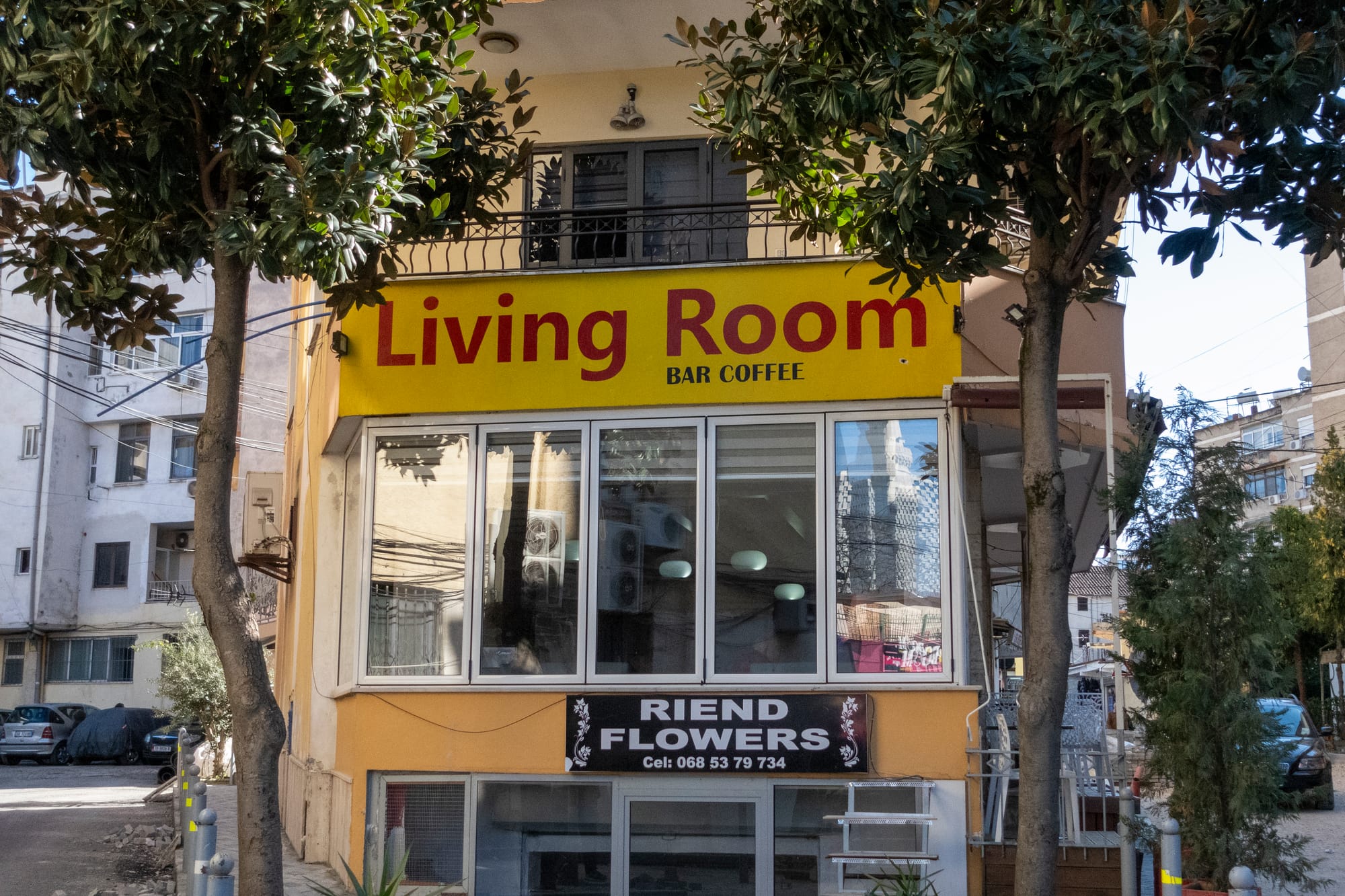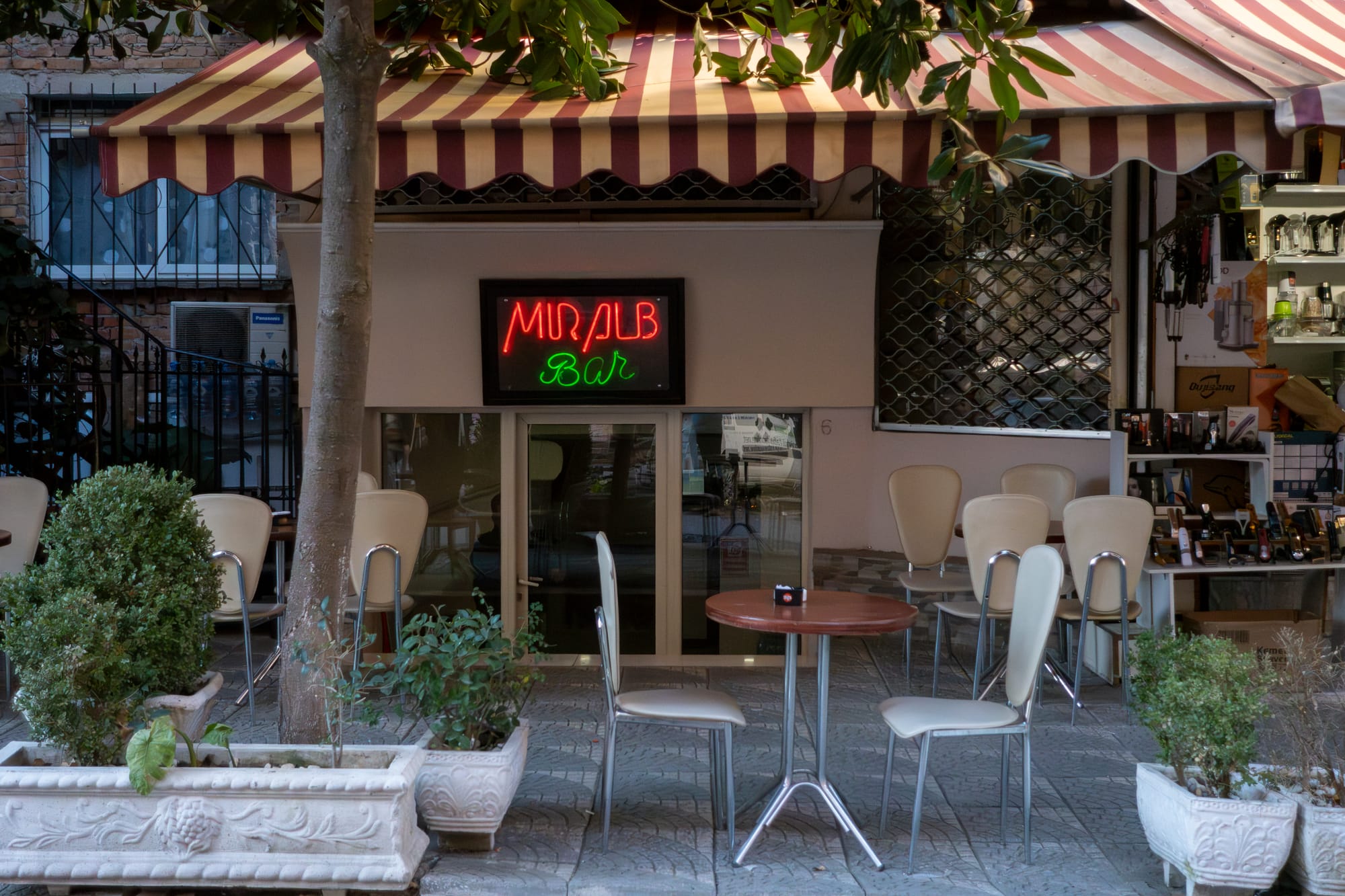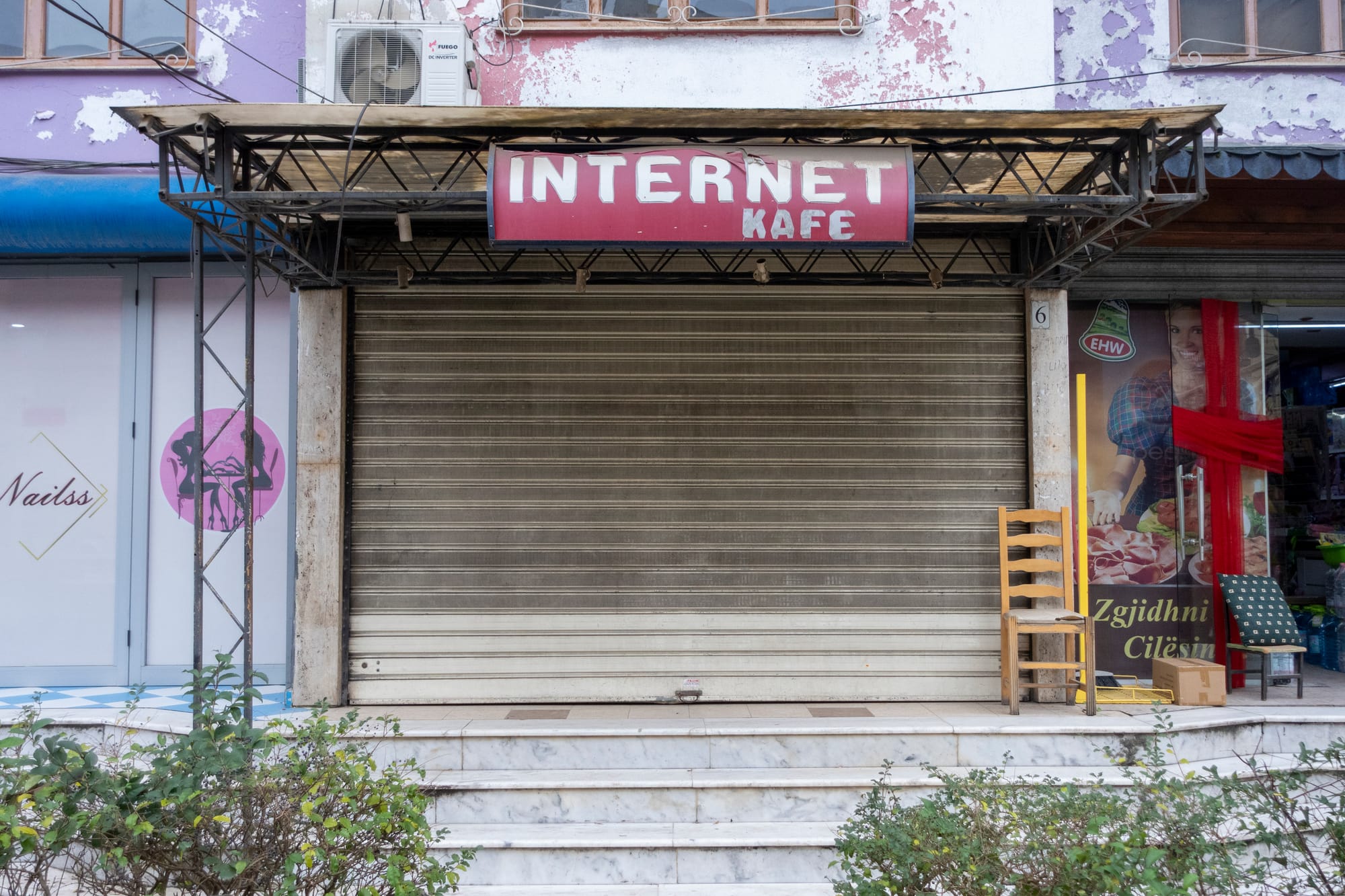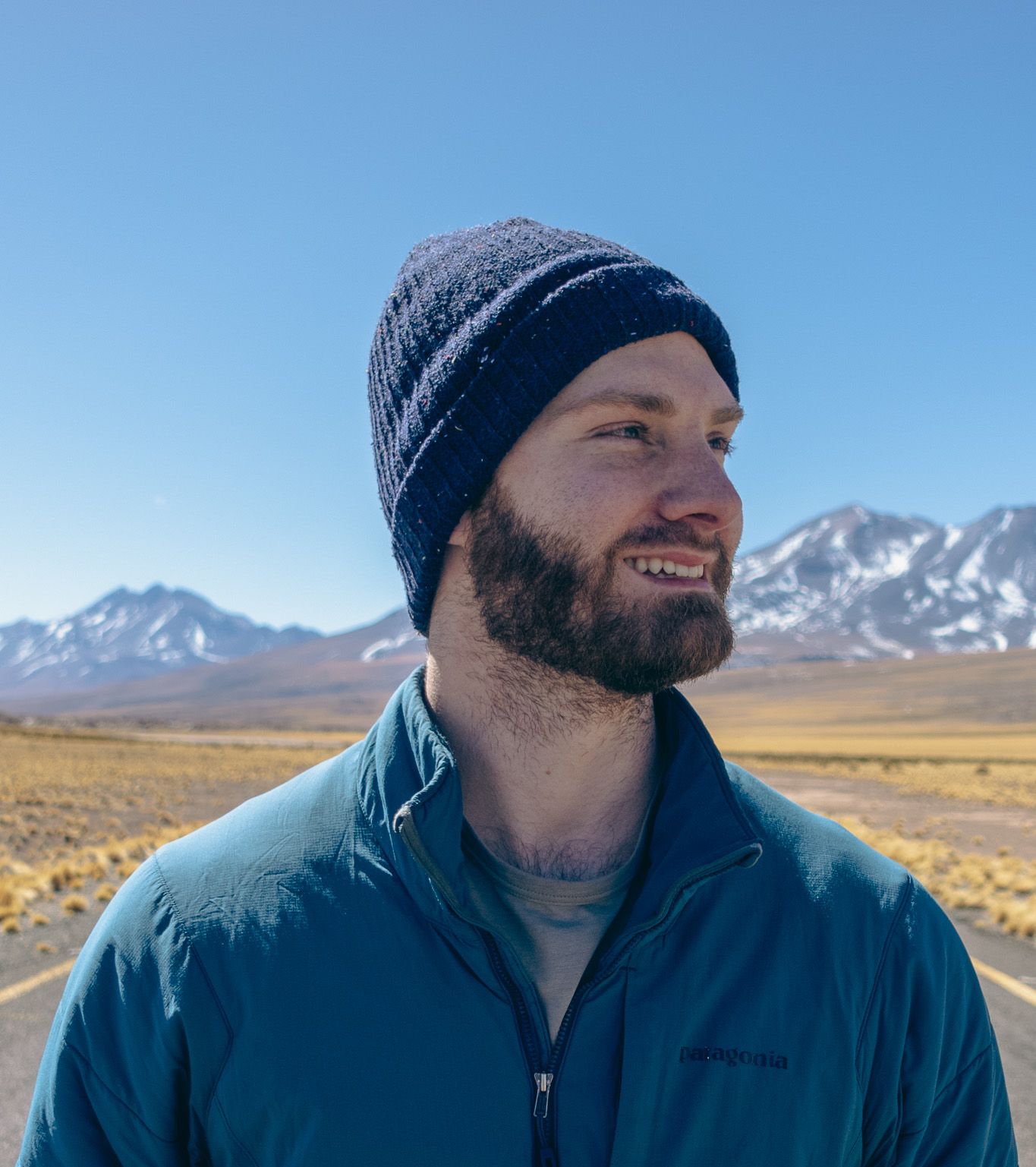On the Albanian Kafe
In Albania, the humble kafe has no equal.
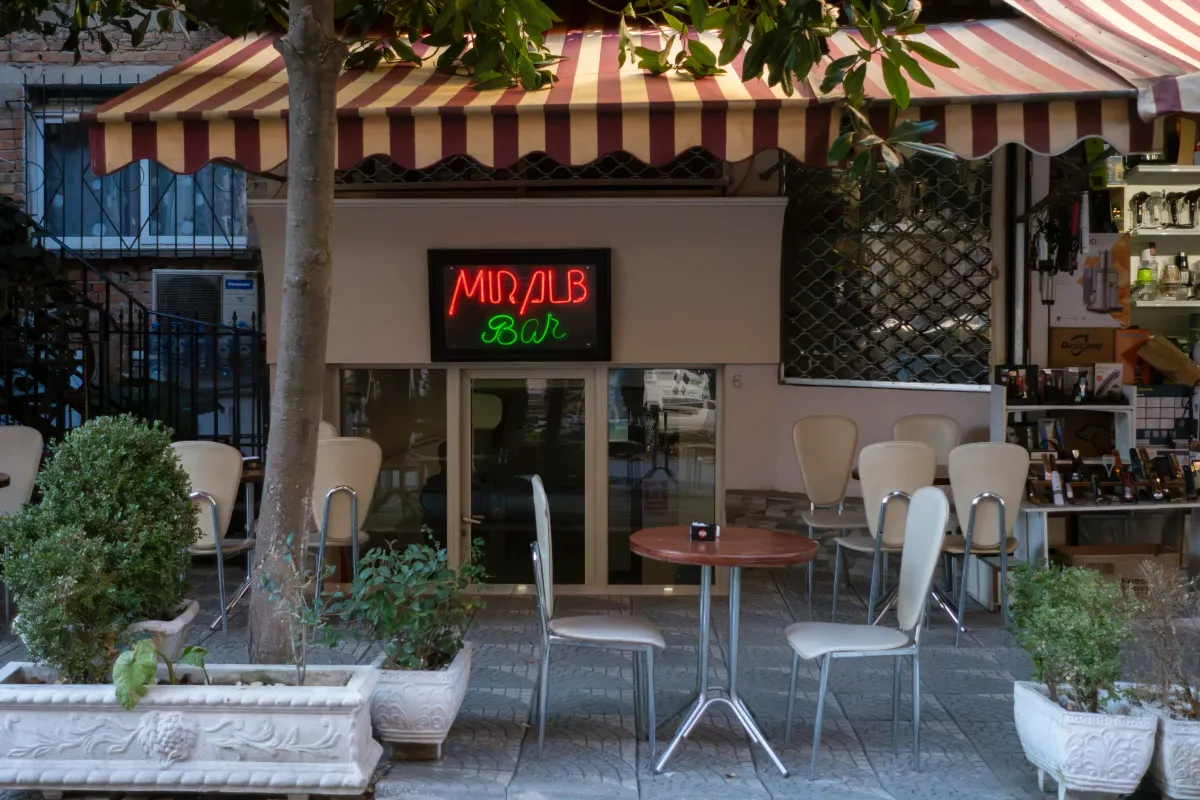
The room is cast in a blue-gray haze from the cigarette smoke. A couple of old couches and a few cheap plastic tables are scattered throughout the place. In the center of the room, a handful of people are gathered around the small cast iron stove. A TV is on, playing highlights of the day’s soccer matches. Behind the small bar, a lady lifts a large plastic water bottle out from under the counter and pours some clear liquid into a small tumbler.
In Albania, the humble kafe stands above all.
Some details are only noticed with time. As travelers, we need time. Time spent walking. Time spent noticing. Time spent existing. Only time will free you from whatever judgment you might be clinging to. After a few weeks of daily walks, consistent themes will emerge, and you'll start to get a sense of the place.
In Albania, it arguably doesn’t take much time to notice the kafe - you’ll find them on every street corner in every city. But it does take time to understand the kafe.
These kafes don’t look like your average U.S. variation of a cafe. They are not hipster coffee shops with artisanal fair trade coffee, full of 20-40-somethings on their MacBooks ordering $10 oat milk lattes. I know these places. I frequent these places. I like my oat milk lattes.
No, the Albanian kafes are more unassuming. Most are an unremarkable storefront with a 20-year-old sign with some variation of the word “bar” or “kafe” written outside. Within you'll find a haphazard assortment of old couches, basic tables, chairs, a cast iron stove, and often some flat-screen TVs. There is no aesthetic. Unless you classify a room full of middle-aged Albanian men watching soccer as an “aesthetic.”
The kafe will have patrons regardless of the time of day. In the morning, the espresso is poured with haste. By the afternoon and into the evening, the drink of choice transitions to beer and eventually raki (a type of local brandy).
These kafes are truly everywhere. They became such a recognizable part of my time in Albania I was enamored with them. Why are there so many? How can they always be busy? Are there kafe turf wars? Do they all shop at the same furniture store?
When I asked people about them, the response would often just be a little chuckle with an offhanded acknowledgment of the sheer quantity. Eventually I managed to talk to my Albanian friend Dini who put it like this:
They are an institution in Albania. You solve everything there, like private and public offices.
The kafe is a town square, a place for refuge, a democratic venue where there is no problem too big, nor too small, to solve.
—
Looking through the windows of a kafe was like looking back at some magical time that felt familiar but never really existed. Not for me at least. But stepping into one was another matter entirely. During my kafe dwelling days and nights, I've learned there are some ground rules.
First and foremost, these are not the kind of places where you look up reviews for "best kafe in Albania". The reviews don't matter. In fact, I’d argue a good review is probably a bad sign. You want the old institutional neighborhood joint that has been around for decades. Just pick one that looks the most weathered. A tattered sign where the word “kafe” is barely legible? Perfect.
And that also goes for the clientele - there's no room for mustachioed men serving craft cocktails in kafe land. You don’t want or even need a menu. Everything you get will be poured out of an espresso machine, beer can, or plastic jug.
Most likely, whichever kafe you pick, everyone there will know each other. Your existence and identity as an interloper is immediately known. But don’t be shy. Albanians are lovely people, so their questioning gaze will be one of curiosity, not distrust. If you're staying somewhere for a few nights, visit the same kafe a few times to ingratiate yourself with the crowd.
There will be frequent bickering and lewd gesturing amongst the patrons about soccer, politics, and/or whatever topic du jour. All of which is totally normal, this is the town square after all. Many Albanians have Italian ancestry, so loud voices and vigorous hand gesturing is their love language.
Finally, the order at the kafe is simple: espresso, beer (Korça or Peja), or raki. Any and all are acceptable at any time of the day.
And, speaking of raki, if it’s poured from a nondescript bottle, that means you have the good stuff. Everyone makes raki in Albania or at least knows someone who makes raki - it’s a tradition, a rite of passage, and a source of pride. The kafe owner likely made the raki themselves, or at the very least got it from a friend. It’ll be cheap and it’ll be damn good.
I fell in love with the Albanian kafes.
They are unapologetically themselves, digging their curmudgeonly heels in and refusing to change. They are bastions of simplicity and community in an increasingly complex and lonely world. These type of third places are exceedingly rare holdouts that offer a place for community, discourse, and laughter.
